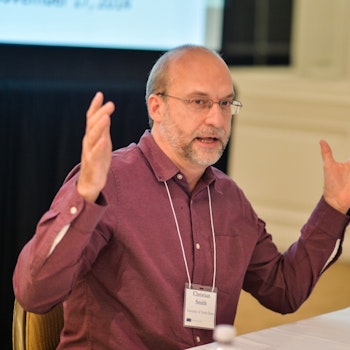Religion remains an important influence in the world today, yet the social sciences are still not adequately equipped to understand and explain it. This book builds on recent developments in science, theory, and philosophy to advance an innovative theory of religion that goes beyond the problematic theoretical paradigms of the past.
Drawing on the philosophy of critical realism and personalist social theory, Christian Smith answers key questions about the nature, powers, workings, appeal, and future of religion. He defines religion in a way that resolves myriad problems and ambiguities in past accounts, explains the kinds of causal influences religion exerts in the world, and examines the key cognitive process that makes religion possible. Smith explores why humans are religious in the first place—uniquely so as a species—and offers an account of secularization and religious innovation and persistence that breaks the logjam in which so many religion scholars have been stuck for so long.
Certain to stimulate debate and inspire promising new avenues of scholarship, Religion features a wealth of illustrations and examples that help to make its concepts accessible to readers. This superbly written book brings sound theoretical thinking to a perennially thorny subject, and a new vitality and focus to its study.
Awards and Recognition
- Winner of the 2018 SSSR Distinguished Book Award, Society for the Scientific Study of Religion
Christian Smith is the William R. Kenan Jr. Professor of Sociology and director of the Center for the Study of Religion and Society at the University of Notre Dame. His books include To Flourish or Destruct: A Personalist Theory of Human Goods, Motivations, Failure, and Evil and What Is a Person? Rethinking Humanity, Social Life, and the Moral Good from the Person Up.
"[A] substantial, richly informed book."—James Ryerson, New York Times
"Written by a leading sociologist, this fascinating and important book analyses what religion is, how it works and why it matters, using an approach combining critical theory with personalist social theory. . . . [It] sheds a great deal of light on religion, its workings and influence and as such should be widely read, not simply by scholars."—Paradigm Explorer
"As Smith asserts, social science can only expose religion for what it is, how it works, and why it matters. It cannot verify or falsify religious truth claims. To whatever superhuman powers we give our allegiance, we still need an explanation for all the other religions. When those religions have been carefully explained (away?), perhaps we will then be willing to turn the analytic lens back on our own religious practices. The payoff is to separate out the human from the superhuman, the bio-psycho-social-cultural from the truly spiritual, a reward of great personal value. Christian Smith is a superb guide to the human side."—Dennis Hiebert, Perspectives on Science and Christian Faith
"Articulate, accessible, and engaging, this book is recommended for students as well as seasoned scholars."—Roger Finke, Pennsylvania State University
"One commonly hears that ‘religion influences people.' In this deeply informed and accessible book, Christian Smith ignores the postmodern claims that religion is merely a discursive category and provides a critical realist account of what it means to speak of the causal power of a set of religious practices. The result is a social scientific theory that explains why religions continue to be powerful entities operating in the world."—Kevin Schilbrack, author of Philosophy and the Study of Religions: A Manifesto
"A significant reinterpretation of religion that will be very useful to a wide range of scholars."—Ann Taves, author of Revelatory Events: Three Case Studies of the Emergence of New Spiritual Paths
"Smith uses his incredibly broad knowledge to develop a definition of religion derived from critical realist and personalist assumptions, and deploys this logic to identify the powers that religion has, how it works for people, and why people are religious in the first place. This book will take its place next to the other prominent comprehensive theories of religion."—John H. Evans, author of What Is a Human?: What the Answers Mean for Human Rights


